What were the details of the Morgan Scalley investigation?
It's no secret that the decision to retain Utah defensive coordinator Morgan Scalley on staff has caused some issues in the world of college football and sports as a whole.
While most of the Utah fan base believes that Scalley should indeed be back and that the punishment he received was either spot on or a little harsh, there are some who believe that he shouldn't be coaching anymore.
Personally, it's not up to me to decide if Harlan and Whittingham made the correct decision or not to keep Scalley. My personal/professional experience with Scalley has been nothing but polite, respectful and real — but as a person of color who has experienced racism in the state of Utah and beyond, it's difficult to forgive and even harder to forget.
The answer to whether or not this was the correct decision will be made in years to come. If, as a I believe he will, Scalley improves from this and stays the man he has been for most of his life, without a doubt this will be the right decision.
Regardless, the decision has been made and Scalley will resume his role in the coaches box come Saturdays during the fall. Whether or not that's right, it's up to everyone else to debate and decide.
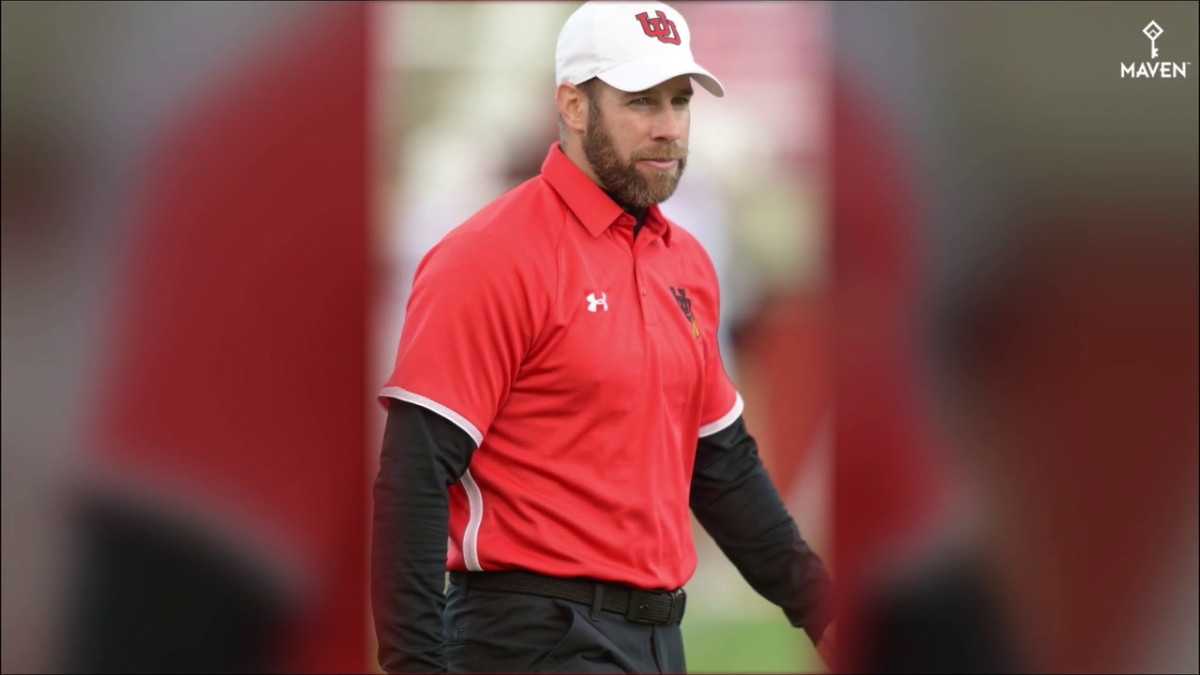
Scalley was originally suspended on June 5 when it came to light that he used a racial slur in a text message exchange with a recruit back in 2013. He was immediately suspended by Harlan, and his employment would be further determined following the results of an independent investigation by Kansas City law firm Husch Blackwell.
Now at the conclusion of the investigation, Harlan and Whittingham penned a letter detailing their reasoning for keeping Scalley on staff, noting his relationship with current and former players and his willingness to accept responsibility of the situation.
"We have thoroughly evaluated all of the information available to us to determine the most appropriate conclusion and path forward. The racist language used by Coach Scalley is inexcusable and harmful to all, particularly to those communities identified in the report. We believe, and expect, that he will learn and lead, while owning his past conduct, to rebuild trust, reconcile harm caused and make a positive impact on the lives of student-athletes."
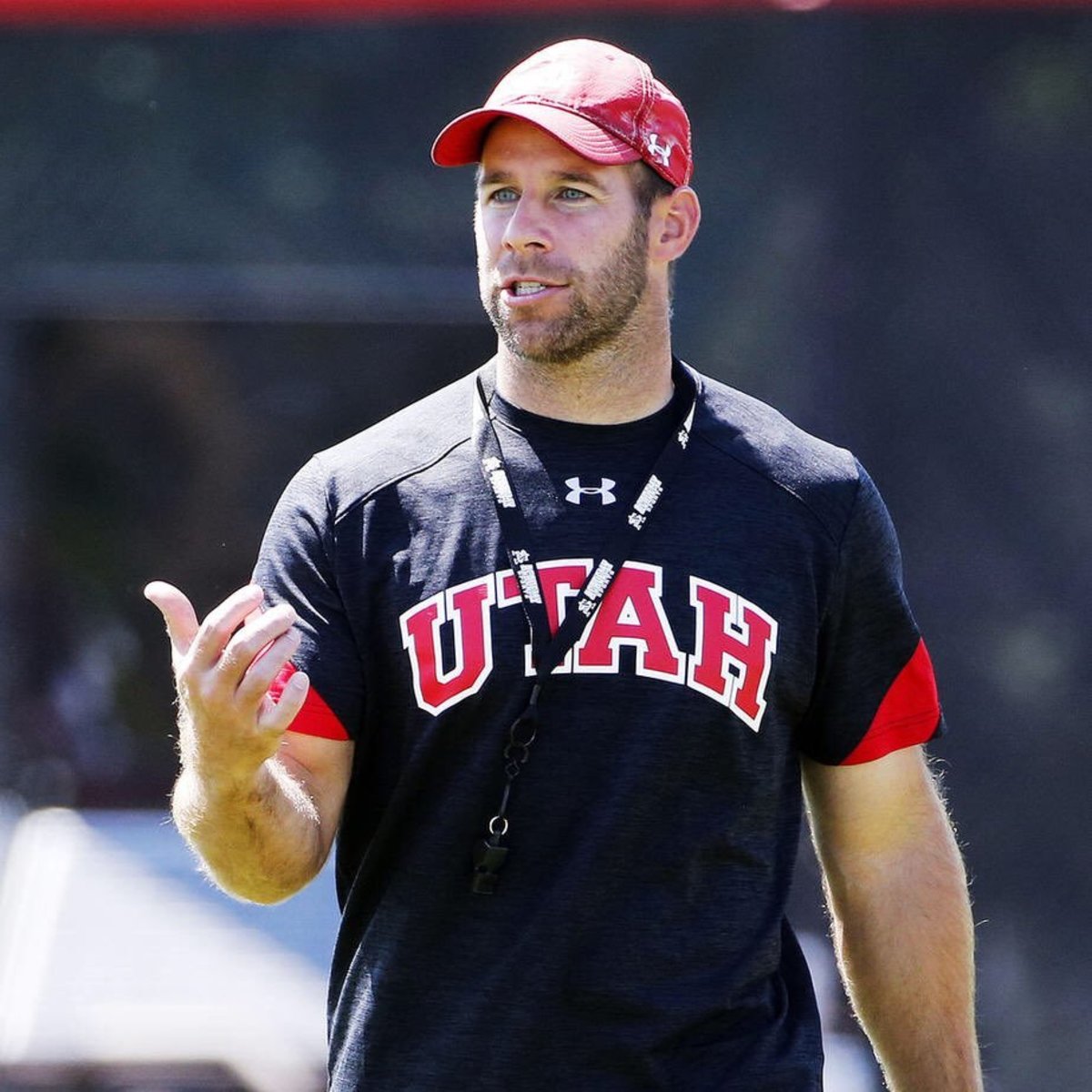
What were the exact findings of the investigation, and most importantly how did they affect the final outcome?
According to the report, Husch Blackwell conducted interviews with 35 individuals involved with Scalley or the program, including 23 current or former members of the program and 15 more of those associated with the program. Nine other current or former players and one former employee either didn't' respond or chose not to participate in the investigation.
The most notable takeaways include almost anyone associated with Scalley being "shocked" at the report he used a racial slur, not to mention him admitting to using the racial slur back in 2013.
There were all three incidents were Scalley was accused of using racial stereotypes in some form or another, although none were meant as a personal attack. Among those accusations was the one from former Ute Ryan Lacy, who accused Scalley of using a racial slur towards him in 2008.
Scalley denied all of the all allegations.
Also, most of the players who participated in the investigation described Scalley as someone who cares about the entirety of the players, and likes to joke and have fun with them. The employees who participated in the investigation echoed those same sentiments — which seem to be in line with nearly everyone's opinion for those who've interacted with Scalley.
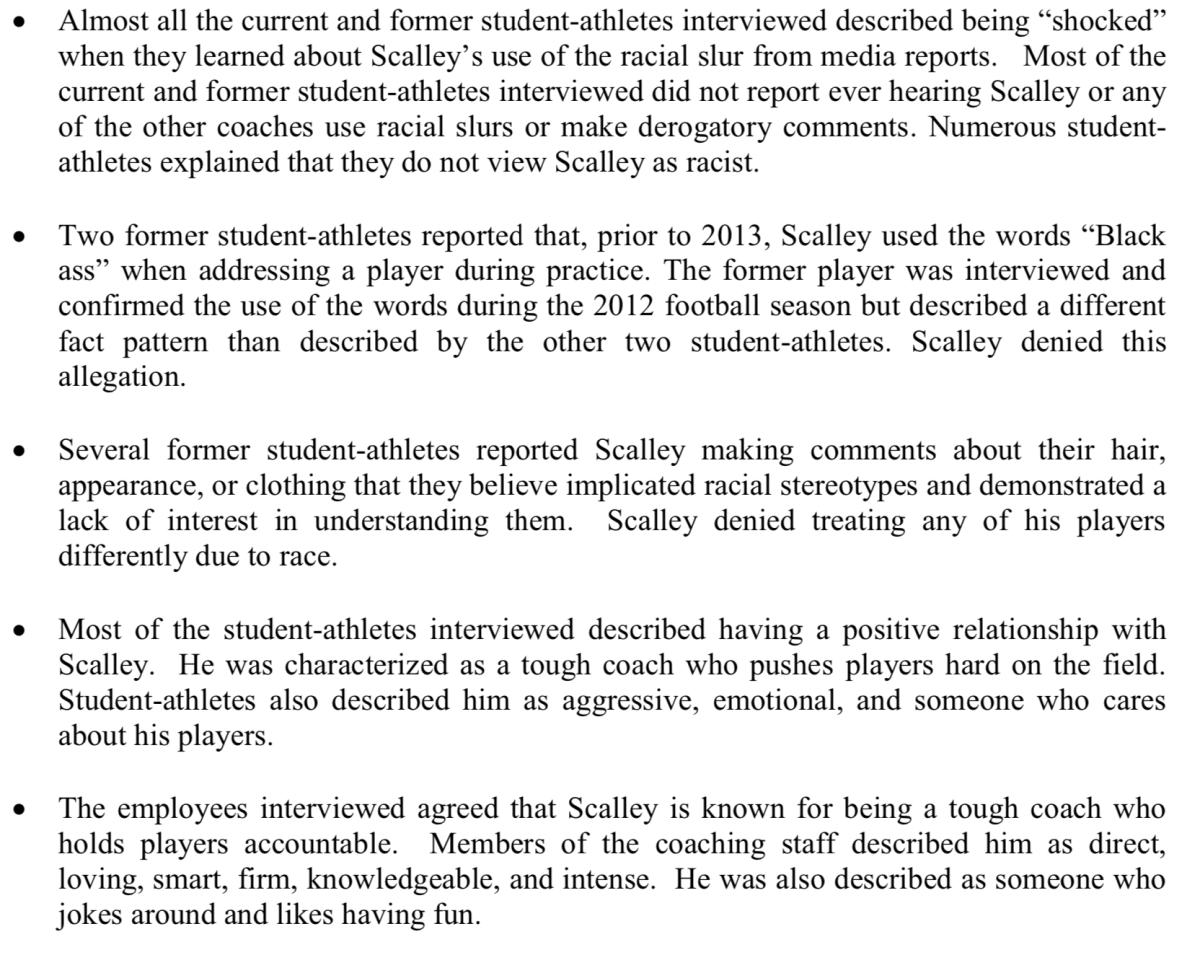
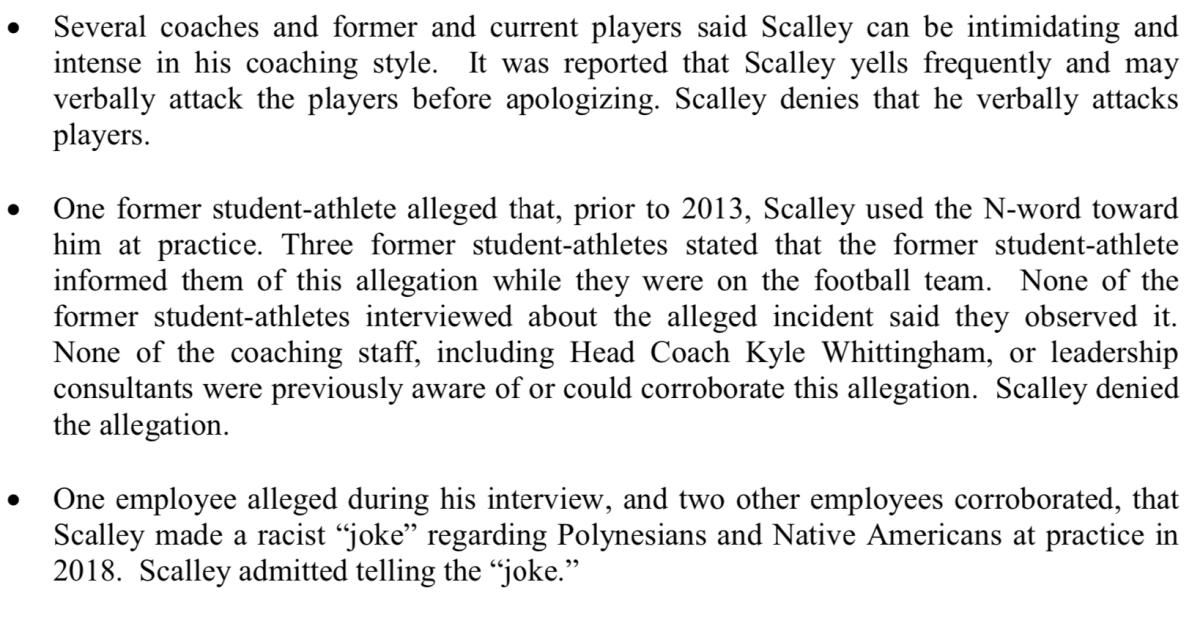
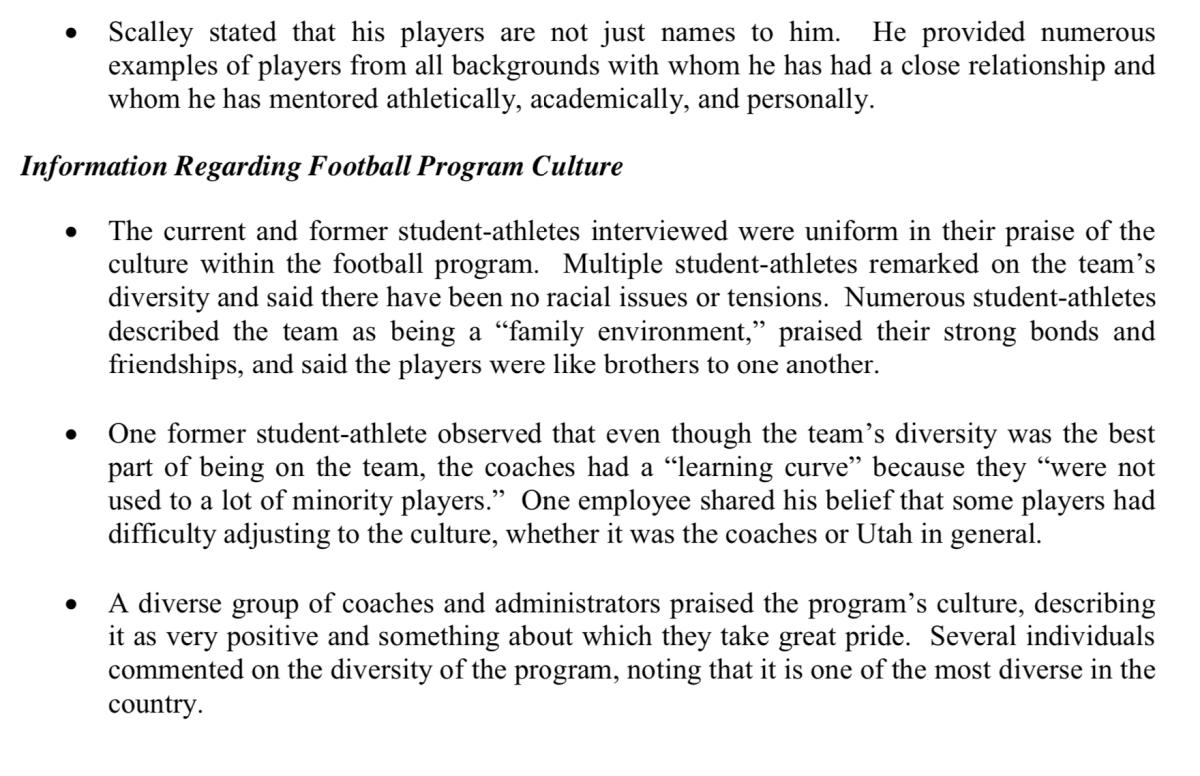
One of the biggest tells about Scalley's job determination came in the letter from Harlan and Whittingham.
They consulted with Utah's Leadership Council, a 13-player committee that leads the team. They also met with the team itself to further understand their expectations and emotions on the matter, coming to the conclusion that they wanted Scalley to stay with the program.
"In addition to the information provided in the report, we have engaged in multiple conversations with student-athletes in the football program to listen and to understand their perspectives as we have worked through this process," Harlan and Whittingham wrote in the letter. "That included an in-depth conversation with the 13-member Leadership Council, a diverse group of student-athletes from the team’s various classes, as well as a meeting with the entire team in which we presented the serious and significant findings of the report. These conversations were insightful and candid, which provided an even deeper level of understanding of the range of emotions our student-athletes are feeling. They communicated to us their concerns and expectations, as well as their strong support for Coach Scalley to remain on the staff."
If the coaches and players are good with Scalley coming back — and most importantly want him back — then who are we to say otherwise?
Want to share opinions or ask questions? We want to hear them! Making a profile is free and it only takes ~1 minute to set up. Also, be sure to like us on social media for future coverage:
Twitter — @UtahUtes_SI and Ryan Kostecka at @Ryan_Kostecka
